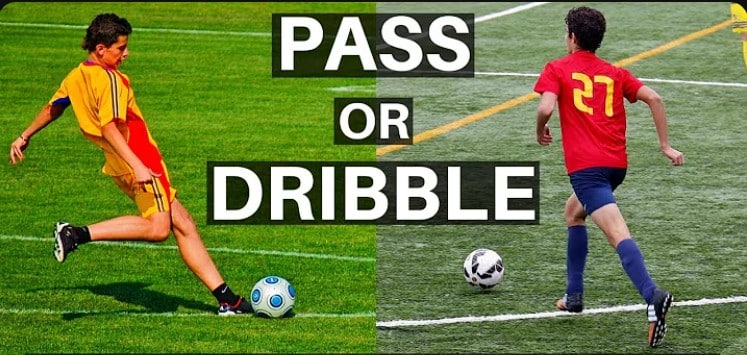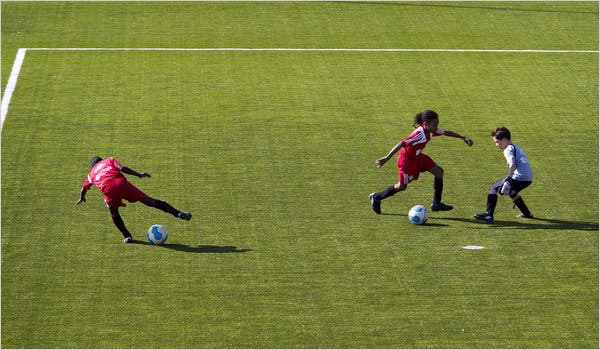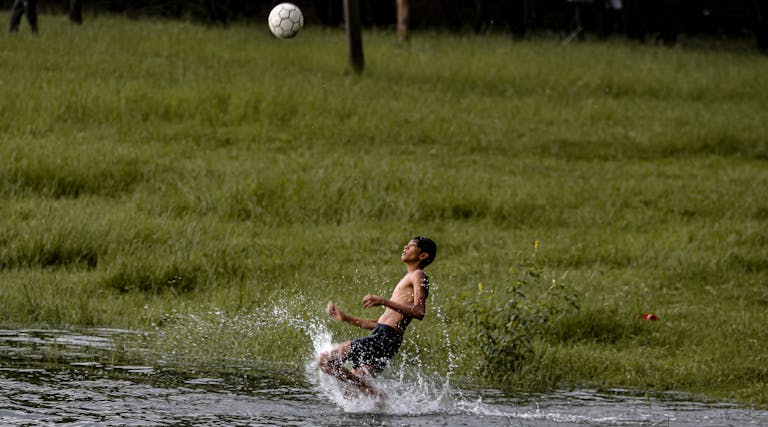There’s something magical about a Friday evening in my life. For many, it’s the end of a workweek — a chance to unwind, to rest. For me, it’s more than that. It’s game day. Every Friday, I meet my school friends — Ansar, Zia, Naheem, Nafiz, Jyoti, and the rest of the gang — not just to play soccer, but to live it. And through those weekly matches, through every pass, goal, laugh, and argument, I’ve learned more about teamwork than any office workshop could ever teach.
In this article, I want to reflect on what playing soccer weekly with my friends has taught me about working as a team, and how those lessons have shaped my life both on and off the field.
More Than a Game — A Gathering of Brothers
We don’t just show up, play, and go home. Our Friday routine starts with a WhatsApp group buzz — “Who’s in today?” Once we confirm the squad, we bring our boots, water bottles, and endless banter.
But before the first whistle, we often talk about everything — from Messi’s latest goal to a new biryani place someone tried. After the match? Snacks! Sometimes tea, sometimes fried food — and always plenty of laughter. These moments before and after the game are where the real bonding happens.
And that bonding is the foundation of our teamwork.
Understanding Each Other’s Strengths and Weaknesses
When you play with the same group of people week after week, year after year, you start noticing things that outsiders might miss. You know that Naheem is fearless in tackles, Nafiz can block a bullet shot, Zia reads the midfield like a chessboard, and Jyoti’s passes are precise when he’s calm.
I’ve learned to adapt my playing style to my teammates. As a left-footed striker, I rely on support — and I know exactly when Ansar will make a forward run, or when Zia will switch the play. That level of understanding doesn’t come from a textbook. It comes from time, trust, and trial.
And this is true teamwork — not everyone doing the same thing, but everyone doing their part, in sync.
Communication: The Real MVP
One of the biggest lessons I’ve learned is how vital communication is in any team. On the field, we’re constantly talking — calling for passes, shouting instructions, even yelling warnings when someone’s about to get tackled.
But it’s more than technical communication — it’s emotional too. A quick “Well played!” after a missed shot, or a clap on the back after a tough defensive effort, boosts morale.
Even when we argue — and oh, we definitely argue sometimes — it’s part of the process. We shout, we jhogra kori (fight), but then we shake hands. No grudges. That’s mature teamwork. Disagreements are allowed — but disrespect isn’t.
Trust: The Glue of the Team
I remember one game where I was completely off form — my shots were off-target, my passes sloppy. But Ansar kept passing the ball to me, trusting I’d eventually find my rhythm. And I did — I scored two goals late in the second half.
That kind of faith in each other is what teamwork is built on.
In our team, we believe in one another. If one player messes up, the rest don’t complain — we cover for him. That sense of having each other’s backs translates beautifully to other areas of life — in family, at work, in friendships.
The Role of Leadership and Responsibility
In our matches, we don’t have a formal captain. But leadership still emerges.
Sometimes Zia steps up to organize the defense. Sometimes I take charge of the front line. When emotions rise, Naheem often cools things down. When morale dips, Jyoti cracks a joke or reminds us of past wins.
We’ve all learned to take responsibility without hierarchy — another vital part of effective teamwork. No one waits to be told what to do. We just do it — because we know it helps the team.
Involving Our Kids: Teaching Teamwork Through Play
Some of the most heartwarming moments happen when our kids come along. My son Munasir, and my daughters Manha and Aisha, have joined us on the field a few times. Other friends also bring their little ones.
These matches become less competitive, more joyful. We let the kids take part, pass them the ball, and watch their faces light up when they get involved. Sometimes they form their own mini-teams and chase the ball around like little champions.
Through these simple games, they learn the early seeds of teamwork — sharing, listening, supporting, and celebrating others. No school lesson can replace what they absorb from watching their fathers play together with love, respect, and unity.
Laughing Together Builds Stronger Bonds
One of the most underrated aspects of teamwork is fun.
We laugh — a lot. When someone misses an easy goal, we tease him for weeks. When someone slips in the mud, it becomes a meme in the group chat. That laughter keeps us light, keeps our ego in check, and makes us eager to come back week after week.
Even our small fights become jokes later on. It’s a cycle of acceptance, forgiveness, and fun — which, believe it or not, strengthens our ability to work as a team.
Celebrating Wins, Accepting Losses
We’ve had amazing wins — comebacks, clean sheets, goal fests. And we’ve also had bad days — where nothing clicks, and the opponents outplay us completely.
But we celebrate the wins together, and we absorb the losses together. Nobody blames, nobody quits. We talk about what went wrong, have a laugh, and plan for next Friday.
That’s how we’ve developed resilience as a team — something that helps me in real life too. I’ve learned to not fear failure, because if I fall, my team is there to lift me.
What These Lessons Mean Beyond the Field
All these lessons — understanding roles, trusting one another, effective communication, handling conflict, sharing joy, and facing failure — are not just for soccer. They’re lessons I take into:
- My work life — managing teams, leading projects
- My family life — guiding my children, supporting my wife
- My faith — staying disciplined, humble, and grateful
Friday soccer isn’t just a tradition. It’s a classroom. And the subject is human connection through teamwork.
Final Thoughts: Keep the Ball Rolling
As I approach 43, many people ask me why I still play soccer every week. The answer is simple — because it gives me life. It gives me friends. It gives me lessons that no book or lecture ever could.
I’ve learned that real teamwork isn’t about shouting instructions or taking all the shots. It’s about building trust, sharing responsibility, and showing up for each other — week after week, even after long tiring days.
So, to my friends — the brothers I share the field with every Friday — thank you for teaching me what it truly means to be a team.
And to anyone reading this, thinking about reuniting with old friends or starting a tradition like ours — do it. Play together. Laugh together. Fight and make up. Teach your kids what it means to be a team. Life is better when we play it together.






